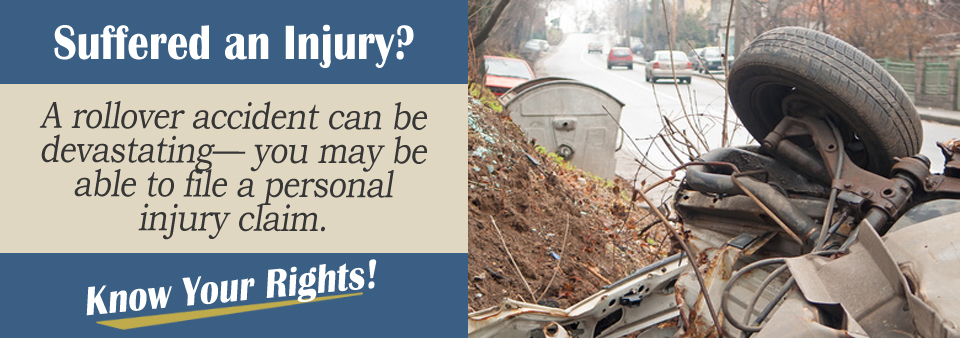Roll-over accidents can lead to life-altering injuries. There are many ways that a roll-over crash can occur. You may be run off the road by another vehicle, or you could be hit by another vehicle and that could cause you to lose control, leaving your vehicle to overturn. When your car rolls over, you may be flung around inside the vehicle. This could cause head, neck, and back injuries.
Filing a Claim After a Roll-Over Accident
If you are involved in a roll-over crash, you should establish medical care right away. You should call the police and make sure an accident report is completed.
You will need to gather supporting evidence and documentation for your claim against the liable party so you can recover compensation for your damages. If you are not at fault, you may want to pursue a claim against the at-fault party as quickly as possible.
The first step in the claims process is to send a demand letter to the at-fault driver and/or their auto insurer. Be sure to provide supporting documentation and specific details about the crash. You want to make sure they understand why you think they are liable.
If you have evidence to back up your claim, they will likely start negotiations with you. You will need to itemize all your damages and then come up with the total value of your claim.

The Claims Process for a Roll-Over Accident
It is imperative to provide supporting evidence for your claim. You will need a copy of the accident report, photos of the accident scene and of the damages, the repair estimates, medical bills, medical records, documentation showing missed work and lost wages, and witness statements. The more supporting evidence that you can provide, the more likely you are to have a successful claim against the at-fault driver.
You will need to determine your damages. This includes damages like lost wages, pain and suffering, medical expenses, property damages, mental anguish, permanent scarring and disfigurement, and so forth.
Every state has a limited time, which is called a statute of limitations for pursuing a personal injury claim after an accident. If you wait until that time limit has passed, you will not be able to pursue a claim and recover your losses.
How a Lawyer Can Help File Your Claim
Personal injury lawyers are experienced in proving negligence, gathering evidence and building strong claims against liable parties. With the help of an attorney, you are more likely to have a successful claim. Your lawyer will also investigate your accident and gather more details that will prove helpful throughout the claims process. Your attorney will also determine your damages and the value of your claim.
Personal injury attorneys have strong negotiation skills, and your attorney will work to resolve the matter before the claim advances to court. But, if you must go to court, your lawyer will represent you there as well. Personal injury lawyers work on a contingency basis, so your lawyer will not be paid until you win your claim. Fill out the Free Case Evaluation today!